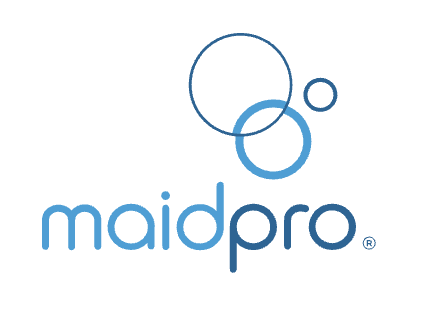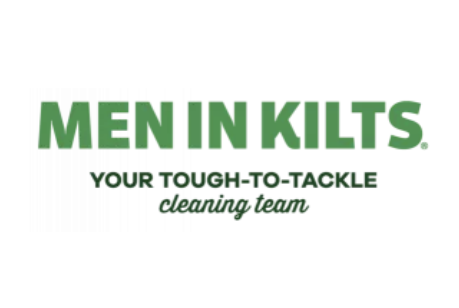Menu
Threshold
Brands
CirrusMD
Program
Everything franchisees need in one place.







An Employee Benefit for $4.60/mo.
CirrusMD provides on-demand primary care for employees as a health benefit. Employees can begin consulting with a doctor in less than 60 seconds, and they have unlimited access without any charges to worry about. It’s a barrier-free way to help employees and their families stay healthy.
As a Threshold Brands franchisee, you can enroll your employees in CirrusMD at $4.60 per month.
CirrusMD is an enterprise primary care platform serving Fortune 500 companies including Target, Michaels, and Circle K. To access CirrusMD, Threshold Brands franchisees are subscribed as a group. Monthly subscriptions and billing are managed by Memberly.
Owner Start-Up

Enroll
Your Employees
To enroll employees, download and complete the subscriber list template. Include the name, DOB, city, state, and zip code of each employee. Add family members below the employee’s name. Submit the list to Memberly.

Start Dates
& Updates
New accounts start on the 1st of the month. If your subscriber list changes, send the updated list to Memberly before the next month starts. The updated list will be effective on the 1st of the next month.

Billing
Cycle
Invoices are sent by Memberly several days in advance for the next month. Make payment electronically using the Bill.com link in the email. You do not need a Bill.com account to make payment.
Employee Start-Up

Download
CirrusMD App
Once an employee is enrolled, they can download CirrusMD at the Apple or Google App Store to a smartphone.

Use CirrusMD
Online
To use CirrusMD online from a laptop, tablet, or computer, an enrolled employee can go to mycirrusmd.com.

Activate
Account
Employees enter their name, DOB, and zip code as submitted in your subscriber list. They will also enter an email address to receive a welcome email.
Free for Families

Children
There is no additional cost to add minor and adult children. Minor children (under 18) are connected to the employee’s CirrusMD account. Adult children (over 18) activate and use their own CirrusMD account.

Spouse
There is no additional cost to add a spouse to an employee’s CirrusMD account. A spouse activates and uses their own CirrusMD account.

Adding
Dependents
There are 2 ways to add dependents.
1. Include dependents in the subscriber list.
2. An employee can email CirrusMD support to request a dependent addition.
CirrusMD Media
Program Contacts
Memberly
Account Set-Up
Manage Subscriber List
Add Dependents via Subscriber List
Billing and Payment
CirrusMD
Tech Issues
Activation Issues
Add Dependents via Email to CirrusMD Support
Program FAQs
Financial
$4.60 per employee per month including dependents.
CirrusMD subscriptions start on the 1st of the month.
Invoices are sent between the 25th and the last day of the month for the next month.
Invoices are sent by Memberly via email. Use the Bill.com electronic payment link in the email to make payment. A Bill.com account is not required to make payment.
No. Once the month starts, the CirrusMD fee is incurred regardless of when the employee is terminated during the month.
No. The CirrusMD fee is incurred regardless of when the employee starts during the month.
No. There is never any other charge to the employee or employer for CirrusMD other than the monthly subscription.
Dependents
No. Adding a spouse and children does not increase the cost of CirrusMD.
An employee who has activated their account can send the name, DOB, and zip code of the dependent to support@cirrusmd.com with instructions. The dependent will be added within 24 hours.
Employers can add dependents by including them in their subscription list under the employee’s name. Include the name, DOB, and zip code of the dependent(s). The dependent will be added on the 1st of the next month.
Yes. There is no age limit on dependents. Adult dependents will have their own CirrusMD account.
Spanish
Yes. Employees can use Spanish translation while texting in the CirrusMD app
Yes. CirrusMD has Spanish speaking doctors if an employee prefers to speak with their doctor instead of texting.
Yes. CirrusMD has brochures in Spanish. These are posted in the CirrusMD download center shown above.
CirrusMD
CirrusMD is a virtual primary care platform connecting employees via text, audio, or video to a licensed doctor over the CirrusMD app. To learn more visit www.cirrusmd.com.
CirrusMD clients include Target, Michael’s, Circle K, and the Veteran’s Administration. Collectively, CirrusMD has over 10 million subscribers.
No. CirrusMD is not health Insurance and will not cover the cost of healthcare provided by other parties.
Yes. At the start of every encounter the CirrusMD doctor will confirm the state in which the employee is located. The CirrusMD doctor cannot rely solely on the location shown in the employee profile.
Memberly is under contract with CirrusMD to manage enrollment of small businesses.
No. CirrusMD is not available to consumers or businesses with less than 5,000 employees. Users must register through Memberly in order to activate their CirrusMD account.
Log-in Issues
Activation issues are often the result of an error in the subscription list. Check your subscription list and contact Memberly if the employee’s record is incorrect. Name, DOB, and zip code must match the subscriber list. Check with the employee to see if they changed their name or moved. If this information is correct, the employee should contact support@cirrusmd.com.
If the employee has activated their account, but cannot log in again, check your subscription list. If the employee is not listed in the file, contact Memberly. If the file is correct, the employee should contact support@cirrusmd.com.
Yes. Install the CirrusMD app, and activate one account at a time with different PIN numbers.
List Updates
Send your updated subscriber list to Memberly by the 20th of the month. The updates will be effective on the 1st of the next month.
Yes. On or about the 10th of the month Memberly will send the current subscriber list. Add new employees to the bottom of the list. Redline terminated employees. Return the list to Memberly by the 20th. The updates will be effective on the 1st of the following month.
The 20th is preferred; however, if additional time is needed we can make updates one day prior to the end of the month which will be effective on the 1st.
Start-Up
Send your subscriber list to Memberly in a spreadsheet format (census) including the name, DOB, city, state, and zip code of the employees to be registered. A census template is available in the download area shown above.
Contact Dom Maggiore at Memberly or Tony Mohorn at Threshold Brands. Use the contact information shown in the contact center.
No. You can stop CirrusMD at any time. You’ll be responsible for the current month and any outstanding invoices.
No. Since we do not collect email addresses or phone numbers, it is not possible to notify employees. If you would like employees to be notified, include their email address or phone number in the far right column of the subscription list.
To use CirrusMD on a smartphone, download the app at the Apple or Google App Store. To use CirrusMD online on a tablet, laptop, or computer go to mycirrusmd.com.
Who Can Join
FT, PT, seasonal, and non-employees can be included.
Yes. CirrusMD can be used by employees enrolled in Medicare, Medicaid, or Tricare.
Yes. CirrusMD can be used by employees enrolled in other health plans. Since CirrusMD is not synced with other health plans, it cannot be used for referrals to the plan services.
Yes. Include employees from other businesses or branches in the subscription list. Indicate the name of the other entity associated with the employee.
Program Resources
Third Party Self-Pay Services and Assistance Programs
Self-Pay Resources
Self-pay resources are third party services that are paid by the employee. With doctors and facilities publishing cash pay prices, self-pay has become a strategy for reducing out-of-pocket costs for insured and uninsured individuals.
By connecting self-pay resources to CirrusMD, employees can navigate to these services using their CirrusMD doctor as a guide. When services such as labs are used, results can be reviewed with the CirrusMD doctor.
With self-pay, employees only pay for what they use, and there is no cost to the employer. More information about self-pay resources are shown below.
Assist Health Group
Assist Health Group operates speciality networks that provide patients with affordable access to healthcare.

Labs
LaboratoryAssist gives self-pay employees access to affordable laboratory testing. Laboratories and draw locations across the US participate in the program to offer quick, high quality and affordable diagnostic lab testing for employees having to pay for testing out of pocket.
Employees can request a lab test referral from CirrusMD which will be sent to LaboratoryAssist.
Once a location is determined, LaboratoryAssist will email instructions and a payment link to the employee.
Lab results can be sent via fax from the lab to CirrusMD for review and a follow-up consultation.
Find a Location

Radiology
Through a network of imaging centers, self-paying employees can access affordable radiology exams including:
MRI
CT Scan
PET Scan
Ultrasound
X-ray
Mammogram
Employees can request a referral from CirrusMD which will be sent to RadiologyAssist.
Once a location is determined, RadiologyAssist will email instructions and a payment link to the employee.
Results can be sent to CirrusMD for review and a follow-up consultation.
Find a Location

Colonoscopies
The program promotes affordable colon cancer screening. The following services are provided at affordable pre-negotiated self-pay rates:
Colonoscopy
Upper Endoscopy
Flexible Sigmoidoscopy
Virtual Colonoscopy
Cologuard
Employees can consult with a CirrusMD doctor regarding a Colonoscopy. A referral is not required. .
Once a location is determined, ColonoscopyAssist will email instructions and a payment link to the employee.
Results can be sent to CirrusMD for review and a follow-up consultation.
Find a Location
Savvos Surgery Marketplace
Savvos is a marketplace for outpatient procedures.

Non-Urgent
Procedures
If a procedure is not urgent, employees can take advantage of the growing market for cash pay outpatient surgery. Savvos will identify outpatient facilities and review prices and payment terms with the employee.
Vist

Bundled
Pricing
Unlike a hospital, procedures performed at a Savvos outpatient facility are billed at a pre-negotiated rate and invoiced as a “bundle”. A bundled payment includes the facility and professional fees such as the surgeon, anesthesiologist, and implant (if applicable).
How it Works

Savvos
Scheduling
Employees contact Memberly to access Savvos and schedule a non-urgent procedure. If a procedure is scheduled, employees pay Savvos in advance. When the procedure is completed, Savvos will distribute payments to the healthcare providers.
Mark Cuban Cost Plus Drugs
Cost Plus Drugs is a self-pay mail order pharmacy.

Mark Cuban
Cost Plus Drugs
Medication prices can vary dramatically depending on the source and discount programs available to employees. Cost Plus Drugs is a self-pay mail order option that an employee can link to their CirrusMD account..
Vist

Using Local Pharmacies
Employees always have the option to use their local pharmacy and can compare prices of medications before instructing the CirrusMD doctor to submit their prescription.
Look up Prices

Connecting
Cost Plus Drugs
To connect Cost Plus Drugs, employees open an account for themselves and enter shipping and billing information. Once this step is complete, the CirrusMD doctor can submit the prescription to Cost Plus Drugs.
Open an Account
Assistance Programs
Many employees and families are uninsured or have very high deductibles exposing them to financial hardship caused by healthcare costs. There are programs available that could help defray these costs, but most employees are unaware of them. Memberly helps bring these programs to employees.
By connecting assistance services to the CirrusMD program, employees can learn about these options and determine if they are eligible. More information about assistance programs are shown below.
.
Goodbill Hospital Bill Negotiation
Goodbill is a hospital bill negotiation service.

Hospital Bill
Negotiation
There is no cost to submit an application for hospital bill negotiation to Goodbill. The bill cannot be in collections. Goodbill does not guarantee a bill will be successfully negotiated.
Visit
Fee for Services
If the hospital bill is successfully negotiated based on a review process, the fee is capped at $750 for employees in the CirrusMD program.
Get Started

Hospital Charity Care
If the hospital bill is reduced or waived based on the hospital’s charity care program, Goodbill does not charge a fee. Memberlly does not receive or accept compensation on any assistance program.
Success Stories
Prescription Bliss
Prescription Bliss is a full service prescription assistance organization.

Prescription
Assistance
Medication drug providers offer programs to help eliminate or reduce the financial burden of high-cost prescriptions. With over 1,500 prescription medications in the Prescription Bliss database, it’s likely they can find a solution to fit an employee’s prescription needs.
Visit

Prescription Bliss Monthly Fee
When medication(s) are approved and processed for shipment the monthly service fee is $39.00 per month, per medication enrolled. This is billed to the employee by Prescription Bliss. There is no charge for the medication.

Ongoing Services
The ongoing fee is paid to Prescription Bliss to manage enrollment in the prescription assistance program. There are no additional charges or hidden fees. Memberlly does not receive or accept compensation on any assistance program.
Tell us about your Franchise
We’re looking forward to hearing from you.
Learn More
Contact Us
324 S. Service Road, Suite 300
Melville, NY 11747
info@memberlybenefits.com
(631) 905-6555
